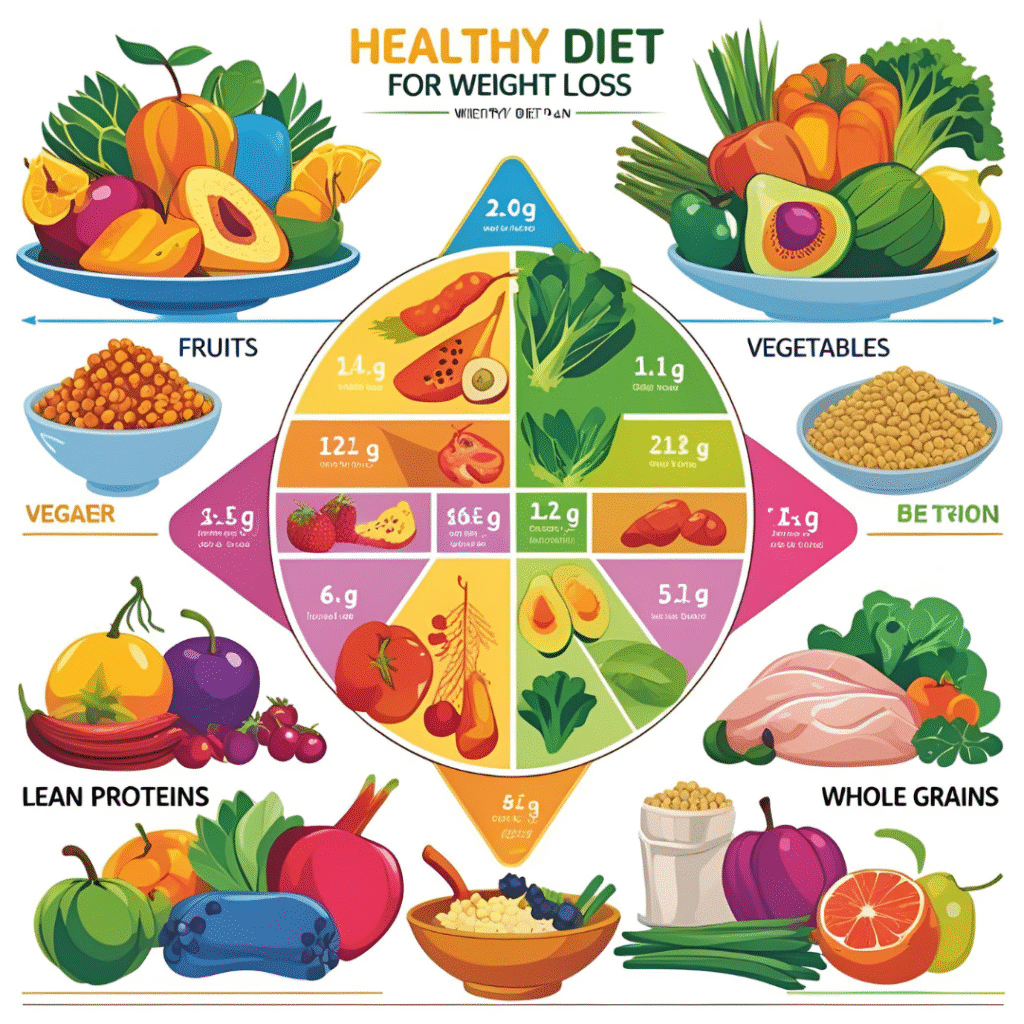🍽️ Introduction: Why Diets Fail — and How to Pick the Right One
Trying to lose weight but overwhelmed by all the conflicting advice? You’re not alone.
With so many “fad diets” and miracle claims, it’s tough to know which is the best diet to lose weight and actually keep it off. The truth? The best diet is sustainable, nutrient-rich, and tailored to your body.
In this post, we’ll break down the top 5 weight loss diets backed by real science and nutrition experts — no gimmicks, just results.
✅ What Makes a Diet Good for Weight Loss?
Before we dive in, here’s what a successful weight loss diet has in common:
-
Keeps you in a calorie deficit
-
Includes whole foods over processed junk
-
Supports muscle retention
-
Avoids nutrient deficiencies
-
Fits your lifestyle and preferences
💡 Bonus Tip: Any diet can help you lose weight short-term. But only a sustainable, healthy plan leads to long-term success.
🔥 Top 5 Best Diets to Lose Weight in 2025
Each of these diets is proven to help people lose fat without extreme restriction:
🥦 1. Mediterranean Diet
Best for: Long-term health, beginners, heart health
How it works: Focuses on fruits, vegetables, whole grains, lean proteins (like fish), olive oil, and nuts.
Why it works: It’s high in fiber and healthy fats, which keeps you full without overeating.
✅ Bonus: Reduces risk of heart disease and inflammation.
🥩 2. High Protein, Low Carb Diet
Best for: Active individuals, muscle retention, faster fat burn
How it works: Emphasizes lean meats, eggs, dairy, legumes, and limits refined carbs.
Why it works: Protein increases satiety and preserves lean mass during weight loss.
💡 Examples: Paleo, Dukan, and flexible IIFYM approaches
🥬 3. Plant-Based Diet (Flexitarian/Vegan)
Best for: Ethical eaters, gut health, clean eating fans
How it works: Minimizes animal products and emphasizes vegetables, beans, whole grains, and plant fats.
Why it works: High in fiber and nutrients while naturally lower in calories.
🥗 Note: Pair with B12 supplementation if going fully vegan.
🧘♂️ 4. Intermittent Fasting (IF)
Best for: Busy schedules, calorie control without micromanaging food
How it works: You eat during a fixed window (e.g., 16:8 or 18:6), fasting the rest of the day.
Why it works: Naturally reduces calorie intake and improves insulin sensitivity.
⚠️ Not ideal for people with diabetes or eating disorders.
🥣 5. Low-Calorie, Balanced Diet (Portion-Controlled)
Best for: Beginners, simple tracking, daily routine eaters
How it works: Eat 1200–1600 calories/day depending on your needs. Focus on clean, portioned meals rich in protein and fiber.
Why it works: No food group is off-limits — just smart portions and consistency.
📦 Tip: Meal prep can make this plan extremely easy to stick to.
🧠 FAQ: People Also Ask
What’s the fastest way to lose weight safely?
Combine a calorie deficit, daily movement, and a whole food-based diet like Mediterranean or high protein.
Is keto diet good for weight loss?
It can work, but may be too restrictive for long-term sustainability. Great for short-term fat loss if followed correctly.
How many calories should I eat to lose weight?
Most women lose weight at 1200–1500 calories/day, men at 1500–1800, depending on activity level and goals.
📌 How to Pick the Right Diet for You
Ask yourself:
-
Can I follow this for more than 3 months?
-
Does it fit my daily lifestyle and preferences?
-
Is it nutrient-dense and free from extreme restrictions?
🥗 Sustainability beats speed. A good diet becomes part of your routine — not a punishment.
🏁 Conclusion: The Best Diet Is the One You Can Stick To
The best diet to lose weight isn’t a trendy label — it’s a method that works for you. Whether it’s Mediterranean, high-protein, plant-based, or intermittent fasting, the key is consistency, whole foods, and calorie control.
💪 Start slow. Make small swaps. And choose a plan that supports your health and mindset — not just your waistline.









